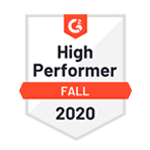In today’s highly competitive job market, the process of applying for recruitment can be overwhelming and frustrating. Job seekers often find themselves struggling to stand out among a sea of qualified candidates, experiencing a range of emotions from excitement to rage. However, by understanding the intricacies of the recruitment process and implementing effective strategies, you can navigate through the challenges and unlock your potential for success. In this comprehensive guide, we will explore the world of rage applying for recruitment, providing valuable insights, tips, and techniques to help you secure your dream job.
What is Rage Applying?
Rage applying refers to the act of submitting job applications out of frustration or anger, without careful consideration or proper evaluation of the job requirements and fit. It is characterized by impulsive and hasty actions driven by negative emotions, such as disappointment, rejection, or dissatisfaction with one’s current employment situation.
The Consequences of Rage Applying For Recruitment
Rage applying for recruitment can have detrimental consequences for both job seekers and employers. Let’s explore the potential outcomes of this impulsive behavior:
Wasted Time and Effort
When individuals engage in rage applying, they often submit applications for positions that do not align with their skills, qualifications, or career goals. Consequently, this results in wasted time and effort spent on applications that are unlikely to yield positive outcomes.
Diminished Job Search Effectiveness
By blindly applying to numerous job postings without careful evaluation, candidates dilute their focus and undermine the effectiveness of their job search efforts. Quality over quantity should be prioritized to increase the likelihood of securing a suitable position.
Increased Stress and Anxiety
Continuous rejections and lack of responses from employers can amplify stress and anxiety levels, leading to a negative cycle of frustration and further impulsive applications. This can perpetuate a sense of helplessness and hinder overall well-being.
Damaged Professional Reputation
Frequent rage applying can negatively impact an individual’s professional reputation. Employers may perceive them as desperate or lacking discernment, which could hinder future job prospects.
Strategies to Overcome Rage Applying in Recruitment
It is crucial to develop strategies to overcome rage applying and approach the job search process with a more thoughtful and strategic mindset. Here are some effective strategies to consider:
-
Reflect and Self-Assess
Before embarking on a job search, take the time to reflect on your skills, interests, and long-term career goals. Conduct a self-assessment to identify your strengths, weaknesses, and areas for growth. This introspection will provide a solid foundation for targeting suitable job opportunities.
-
Research and Tailor Applications
Rather than submitting generic applications, invest time in researching potential employers and tailoring your application materials accordingly. This includes customizing your resume, cover letter, and any additional documents to highlight the skills and experiences most relevant to the position.
-
Network and Seek Recommendations
Networking plays a crucial role in the job search process. Connect with professionals in your desired industry, attend networking events, and leverage online platforms such as LinkedIn to expand your professional network. Seek recommendations from trusted connections, as personal endorsements can significantly enhance your chances of securing interviews.
-
Set Realistic Expectations
Maintain realistic expectations throughout the job search process. Understand that finding the right position takes time and perseverance. Be prepared for rejections and setbacks, but don’t let them discourage you. Stay positive, focused, and adaptable in your approach.
-
Seek Professional Guidance
If rage applying has become a persistent issue, seeking professional guidance from career coaches or counselors can be highly beneficial. These experts can provide personalized advice, help you navigate challenges, and offer valuable insights into the job market.
-
Track and Analyze Application Metrics
Tracking and analyzing application metrics can provide valuable insights into the recruitment process. Identify patterns and trends in the number of rage applicants and assess the effectiveness of your filtering methods. By regularly reviewing and adjusting your recruitment strategies based on these metrics, you can continuously improve the quality of candidates and reduce the occurrence of rage applying for recruitment process.
How to Rage Apply Correctly for Recruitment
When engaging in rage applying for recruitment, it is crucial to exercise caution and adopt a strategic approach to optimize your chances of success. Here are some valuable tips to ensure that you navigate this process effectively.
The Importance of First Impressions
When it comes to applying for a job, first impressions matter. Recruiters often form an initial opinion of candidates based on their resumes and cover letters. To make a lasting impression, it is crucial to tailor your application materials to the specific job requirements. Highlight your skills, experiences, and achievements that align with the position, using action verbs and quantifiable results to showcase your impact. Additionally, proofread your application thoroughly to ensure there are no grammatical or spelling errors that could detract from your professionalism and attention to detail.
Crafting an Eye-Catching Resume
Your resume serves as a marketing tool, representing your qualifications and suitability for the desired role. To make your resume stand out, consider the following tips:
- Utilize a clean and professional format with clearly labeled sections.
- Include a concise and impactful summary statement at the beginning.
- Highlight relevant experiences and achievements using bullet points.
- Incorporate keywords from the job description to optimize your resume for applicant tracking systems.
- Quantify your accomplishments whenever possible to demonstrate your contributions.
Remember, your resume should be tailored to each job application, emphasizing the skills and experiences most relevant to the role you are applying for.
Preparing for the Interview
The interview stage is a critical opportunity to showcase your personality, communication skills, and suitability for the job. To prepare effectively, consider the following strategies:
- Research the company and the role thoroughly to demonstrate your interest and enthusiasm.
- Practice answering common interview questions, focusing on providing concise and compelling responses.
- Prepare a few questions to ask the interviewer to demonstrate your engagement and interest in the role.
- Dress professionally and maintain a confident posture during the interview.
- Follow up with a thank-you email or note after the interview to express your gratitude and reiterate your interest in the position.
Therefore, by preparing thoroughly and showcasing your unique qualities, you can leave a lasting impression on the interviewer.
Mastering the Art of Networking
Networking plays a crucial role in the recruitment process, often opening doors to new opportunities and connections. To expand your professional network, consider the following strategies:
- Attend industry events, conferences, and workshops to meet like-minded professionals.
- Utilize online networking platforms such as LinkedIn to connect with industry leaders and potential employers.
- Join professional associations and organizations relevant to your field to access valuable resources and networking opportunities.
- Engage in informational interviews to learn from professionals in your desired field.
- Offer assistance and support to others in your network to build mutually beneficial relationships.
Remember, effective networking is not just about self-promotion but also about fostering genuine connections and relationships.
Utilizing Online Platforms
In today’s digital age, online platforms provide numerous resources and opportunities for job seekers. To enhance your job search, consider the following:
- Create a strong online presence through professional platforms like LinkedIn.
- Regularly update your LinkedIn profile with relevant experiences, skills, and achievements.
- Utilize job search websites and platforms to explore available opportunities.
- Leverage online professional communities and forums to seek advice and guidance from industry experts.
- Stay active on social media, ensuring your online presence aligns with your professional image.
Therefore, by harnessing the power of online platforms, you can expand your reach and increase your chances of finding the right job.
Handling Rejections with Grace
Rejections are an inevitable part of the job search process, but they should not discourage you from pursuing your goals. To maintain a positive mindset, consider the following:
- View rejections as opportunities for growth and learning.
- Seek feedback from employers to gain insights into areas of improvement.
- Stay resilient and continue refining your skills and experiences.
- Engage in self-care activities to manage stress and maintain a healthy work-life balance.
- Surround yourself with a supportive network of friends and family who can provide encouragement and guidance.
Remember, each rejection brings you one step closer to the right opportunity.
Conclusion
Consequently, applying for recruitment can be an emotional rollercoaster, from the initial excitement to the occasional bouts of rage. However, by implementing the strategies of rage applying for recruitment, outlined in this guide, you can navigate the process with confidence and unlock your potential for success. Remember, it’s not just about finding any job, but finding the right job that aligns with your passions and goals. So, be patient, persistent, and proactive in your job search, and never underestimate the power of self-belief and determination.
FAQs
How can I make my resume stand out from the competition?
To make your resume stand out, focus on showcasing your unique skills and experiences. Tailor your resume to each job application, highlight quantifiable achievements, and use action verbs to demonstrate your impact. Additionally, consider incorporating eye-catching design elements and formatting to make your resume visually appealing.
How can networking help in the recruitment process?
Networking can significantly enhance your job search by providing access to hidden job opportunities and valuable industry connections. By building genuine relationships, attending industry events, and utilizing online networking platforms, you can expand your professional network and increase your chances of finding the right job.
What online platforms should I utilize for job searching?
There are several online platforms that can assist you in your job search. Some popular ones include LinkedIn, Indeed, Glassdoor, and Monster. These platforms provide access to job listings, networking opportunities, and resources for professional development.
How do I maintain a positive mindset in the face of rejections?
Maintaining a positive mindset during the job search process can be challenging, but it is essential for your overall well-being. View rejections as opportunities for growth, seek feedback to improve, engage in self-care activities, and surround yourself with a supportive network. Remember, the right opportunity will come at the right time.
What should be my approach after receiving a job offer?
After receiving a job offer, take the time to evaluate the offer carefully. Consider factors such as salary, benefits, company culture, and growth opportunities. If the offer aligns with your career goals, express your gratitude and acceptance promptly. If not, kindly decline the offer while expressing appreciation for the opportunity.






















